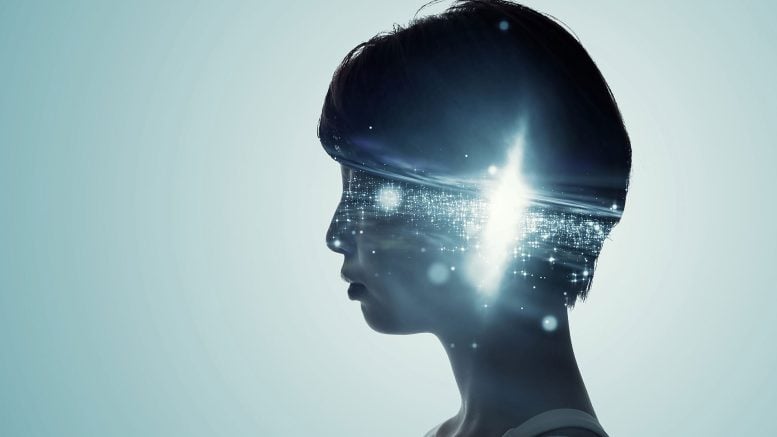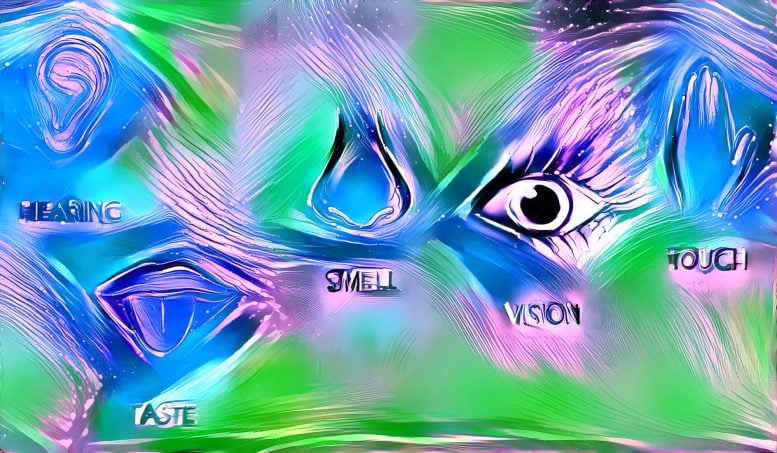
A mathematical model shows memory capacity is maximized when represented by seven features. The study links this to the potential for seven senses, with applications in AI and neuroscience.
Skoltech researchers have developed a mathematical model to study how memory works. Their analysis led to unexpected insights that may advance the design of robots, artificial intelligence, and our understanding of human memory. The study, published in Scientific Reports, suggests there could be an ideal number of senses. If that is true, then humans with five senses might actually benefit from having a few more.
“Our conclusion is, of course, highly speculative in application to human senses, although you never know: It could be that humans of the future would evolve a sense of radiation or magnetic field. But in any case, our findings may be of practical importance for robotics and the theory of artificial intelligence,” said study co-author Professor Nikolay Brilliantov of Skoltech AI. “It appears that when each concept retained in memory is characterized in terms of seven features — as opposed to, say, five or eight — the number of distinct objects held in memory is maximized.”
Modeling memory engrams
Building on a framework established in the early 20th century, the team focused on the basic units of memory known as “engrams.” An engram can be described as a sparse network of neurons distributed across different brain regions that activate together. Its conceptual content is an idealized object defined by multiple characteristics.
In human memory, these characteristics map to sensory inputs. For instance, the memory of a banana would include its image, smell, taste, and other sensory details. Altogether, this forms a five-dimensional representation that exists within a larger five-dimensional space containing all other stored concepts.

Over time, engrams can become more refined or more diffuse depending on how frequently they are triggered by external stimuli acting through the senses, which in turn recall the memory of the object. This process represents how learning strengthens memories while disuse leads to forgetting through environmental interaction.
“We have mathematically demonstrated that the engrams in the conceptual space tend to evolve toward a steady state, which means that after some transient period, a ‘mature’ distribution of engrams emerges, which then persists in time,” Brilliantov commented. “As we consider the ultimate capacity of a conceptual space of a given number of dimensions, we somewhat surprisingly find that the number of distinct engrams stored in memory in the steady state is the greatest for a concept space of seven dimensions. Hence, the seven senses claim.”
Maximizing conceptual space
In other words, let the objects that exist out there in the world be described by a finite number of features corresponding to the dimensions of some conceptual space. Suppose that we want to maximize the capacity of the conceptual space expressed as the number of distinct concepts associated with these objects. The greater the capacity of the conceptual space, the deeper the overall understanding of the world. It turns out that the maximum is attained when the dimension of the conceptual space is seven. From this, the researchers conclude that seven is the optimal number of senses.
According to the researchers, this number does not depend on the details of the model — the properties of the conceptual space and the stimuli providing the sense impressions. The number seven appears to be a robust and persistent feature of memory engrams as such. One caveat is that multiple engrams of differing sizes existing around a common center are deemed to represent similar concepts and are therefore treated as one when calculating memory capacity.
The memory of humans and other living beings is an enigmatic phenomenon tied to the property of consciousness, among other things. Advancing the theoretical models of memory will be instrumental to gaining new insights into the human mind and recreating humanlike memory in AI agents.
Reference: “The critical dimension of memory engrams and an optimal number of senses” by Wendy Otieno, Ivan Y. Tyukin and Nikolay Brilliantov, 15 August 2025, Scientific Reports.
DOI: 10.1038/s41598-025-11244-y
Never miss a breakthrough: Join the SciTechDaily newsletter.
1 Comment
We can sense temperature difference, there’s six.